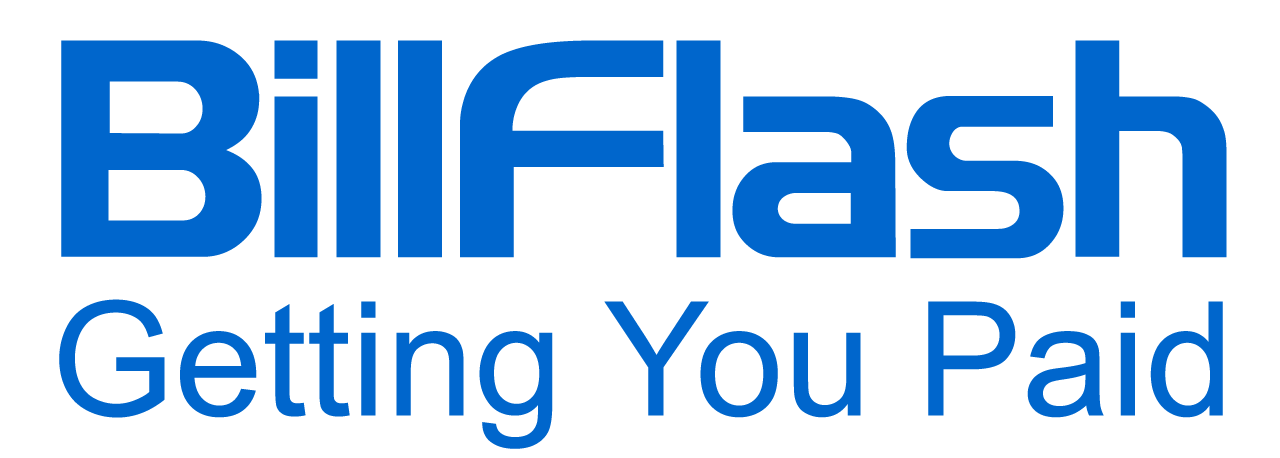Revenue cycle management analytics and reporting is vital for medical practices that want to maximize their financial performance.
As hospitals continue to grapple with the financial pressures of increased costs, reduced patient numbers, and staffing shortages, ensuring reimbursements from payers are correct becomes a necessity. It’s estimated that up to 1% of total net patient service revenue may be lost through billing errors alone — not counting underpayments or wrongly denied reimbursements. Healthcare revenue cycle management platforms are essential in streamlining processes and reducing labor costs. However, providers can get more out of their workflows with the help of advanced revenue cycle management analytics and reporting.
Revenue cycle management analytics offer a comprehensive overview from start to finish. It gives healthcare providers insight into where they can make improvements for increased revenue generation. By analyzing each step along the way (from the initial appointment all the way through the final payment) — providers gain valuable information about how to speed up income streams.
The Role of Analytics in Revenue Cycle Management

Analyzing revenue cycles is important for any medical practice that wants to maximize its financial performance. Without access to data and the capability to make sense of it to tackle revenue cycle issues, healthcare leaders are often in the dark about reimbursement trends, potential billing and workflow problems, as well as their facility's real-time financial situation. In fact, revenue cycle management analytics makes this achievable by leveraging software to provide key insights into potential areas of improvement and leakage, like billing, payment processing, and revenue management. No matter the size or complexity of your healthcare facility, modern technology can be leveraged in order to stay competitive on all fronts — from data-driven decision-making and budgeting optimization down to streamlining RCM processes.
Defining Analytics: Powering Revenue Cycle Management Insights
Revenue cycle management analytics is a game-changer when it comes to controlling costs. It gives you an idea of how different measures interact with each other. This way, you can get a better understanding of what your healthcare practice's true cost looks like. Unfortunately, some health information systems or billing solutions lack such analytical capabilities. This leaves staff expending time and energy trying to obtain data through outdated manual processes. Intelligence-driven analytics can provide up-to-date insights for making more informed decisions.
Analytics are also key to providing quality, value-based health care as the industry shifts away from fee-for-service models. Healthcare organizations must understand their patient population beyond diagnosis to take advantage of programs that reward outcomes and incentivize performance. Data and analytics enable a clinical side view that helps optimize revenue cycle management for value-based reimbursements. This ultimately sets up modern healthcare teams for success in an ever-changing landscape.
Unveiling the Remarkable Benefits of Analytics
In fact, the power of analytics in revenue cycle management (RCM) is undeniable. From improved financial performance to enhanced decision-making, leveraging data and insights can give your practice a major lift. With the right tools and resources, you can identify potential revenue loss and areas that have room for improvement.
To maximize success, your healthcare team must embrace an analytical approach that emphasizes agility, innovation, as well as creativity. By strategically utilizing modern technology within RCM processes, healthcare facilities can take proactive steps toward achieving their goals with greater efficiency than ever before!
Improved Financial Performance and Profitability
The utilization of analytics in revenue cycle management can bring about remarkable financial gains. Through careful analysis and leveraging key data, healthcare practices can observe an uptick in their bottom line. By utilizing this technique, they will gain access to pertinent information that could help them identify areas for improvement or cost-cutting measures that would positively impact their profitability.
Enhanced Decision-Making and Strategic Planning
With the right data-driven insights, healthcare teams will be able to react quickly to changes in the industry and capitalize on opportunities as they arise. Analytics also provide valuable feedback about the performance of different aspects of your organization, such as patient satisfaction or financials. Analytics also helps create an environment where resources are used efficiently, and waste is reduced. In fact, this is something all healthcare organizations strive toward today.
Identification of Revenue Leakage and Areas for Improvement
Analytics allows you to spot any revenue losses as well as areas that require improvement. This is a crucial factor for the success of a healthcare organization. By leveraging analytics, healthcare organizations can identify areas of loss and pinpoint opportunities for improvement. With the help of advanced analytics tools, you’ll have an in-depth look at your data to uncover potential issues such as incorrect coding or billing errors (which could cost you greatly).
Leveraging Reporting in Revenue Cycle Management

When it comes to revenue cycle management, accurate and timely reporting is key. To ensure success in this area, there are reports and metrics that you must track on a regular basis.
Financial Reports
Think balance sheets, income statements, as well as aging reports — all designed to help you keep track of your healthcare facilities' financial performance.
Denial and Rejection Reports
Having these documents will help identify areas needing improvement quickly. This way, the chances of payment denials or rejections do not become a regular occurrence moving forward.
Performance Dashboards & Scorecards
These tools allow you to monitor key performance indicators (KPIs) daily — allowing insight into how efficient your processes really are! Keeping an eye out for any abnormalities through regular tracking will also go a long way in ensuring optimum performance.
By staying ahead of the curve with these precise metrics, healthcare practices can enhance their financial results significantly. They can start making better decisions for today while building a strong foundation for tomorrow!
Challenges in Analytics and Reporting
Analyzing and reporting on healthcare data presents a range of challenges. From gathering accurate information to deciphering complex datasets, healthcare professionals must contend with a variety of obstacles when trying to extract meaningful insights from their health records. To provide the best care possible for their patients, healthcare providers need to have access to reliable analytics and reporting tools that can help them keep track of trends in patient statistics over time.
Let's explore some common challenges associated with analytics and reporting:
Data Quality and Integrity
Maintaining high-quality data is important to successful analytics, reporting, and decision-making. Without reliable information from accurate sources, healthcare organizations can find themselves in a precarious position with unreliable or incorrect results. Healthcare providers must ensure all their data is up to date by utilizing the latest technologies—such as automation process monitoring systems—for continued accuracy.
Integration of Disparate Data Sources
When it comes to analyzing critical health metrics across multiple departments within one organization, integration between various databases becomes an imperative task. Building bridges between different systems requires technical know-how along with organizational dedication. Having both working together will create a seamless flow of information. This, in turn, can be used for more precise analysis and better decision-making capabilities overall.
Ensuring Data Privacy and Security
As more healthcare providers store patient records digitally today, creating secure boundaries around those stored files is necessary. This is especially important if they want to keep them safe from unauthorized access or those looking to exploit weaknesses in their systems. Healthcare organizations should always investigate the latest security protocols being developed — while also investing heavily in training staff on how best to always protect confidential patient information.
Best Practices for Successful Analytics and Reporting in Revenue Cycle Management

Successfully navigating the world of analytics and reporting in revenue cycle management can be overwhelming. It's important to follow best practices that will ensure data accuracy and efficient operations—from obtaining accurate data sets to evaluating complex models—these best practices will help make sure you're getting the most out of your reports while delivering results that are both meaningful and actionable.
Establishing Clear Goals and Objectives
To achieve success in analytics and reporting within revenue cycle management, realistic goals that are attainable with an action plan for achieving them should be set. Having the perfect strategy involves taking a comprehensive look at your existing systems, evaluating current processes, setting achievable benchmarks, leveraging data-driven insights, and tracking performance metrics regularly.
Investing in the Right Technology and Tools
From utilizing data-driven decision-making to leveraging sophisticated applications, there are plenty of resources that can be harnessed to make sure your data is reliable and accurate. You can start by investing in high-quality visualization tools like dashboards. These provide easy ways for users to access critical insights quickly without being overwhelmed by huge amounts of raw data. Also, consider using automation whenever possible, such as scheduling reports or creating alerts when key metrics change significantly.
Embrace Analytics for Enhanced RCM Efficiency with BillFlash
Healthcare organizations should recognize the importance of data-driven decision-making. By utilizing evidence-based strategies, they can make informed choices that will have a positive impact on their patient outcomes and services. Drawing upon current trends in technology and innovation can also help to break down barriers to transformation — while inspiring new ways of thinking about healthcare solutions.
Embracing the power of data is a must for any healthcare organization looking to stay ahead in today's competitive landscape! BillFlash RCM Services provide a comprehensive end-to-end solution for healthcare practices looking for ways to streamline their revenue cycle management. From the very start of the payer process to its conclusion, our solutions cover it all. This includes patient billing and payment processing to collections management, coding accuracy oversight, as well as revenue cycle optimization. You get detailed performance reports that can help you identify opportunities to optimize your revenue stream, including spotting areas where denials are occurring so they can be addressed quickly. Our analytics tools also allow you to measure certain key performance indicators (KPIs) across the entire revenue cycle. This, in turn, will enable you to fine-tune your workflow processes for improved productivity and maximum profits. Discover how BillFlash RCM services can turn insights into results for your practice. Schedule a demo today!

